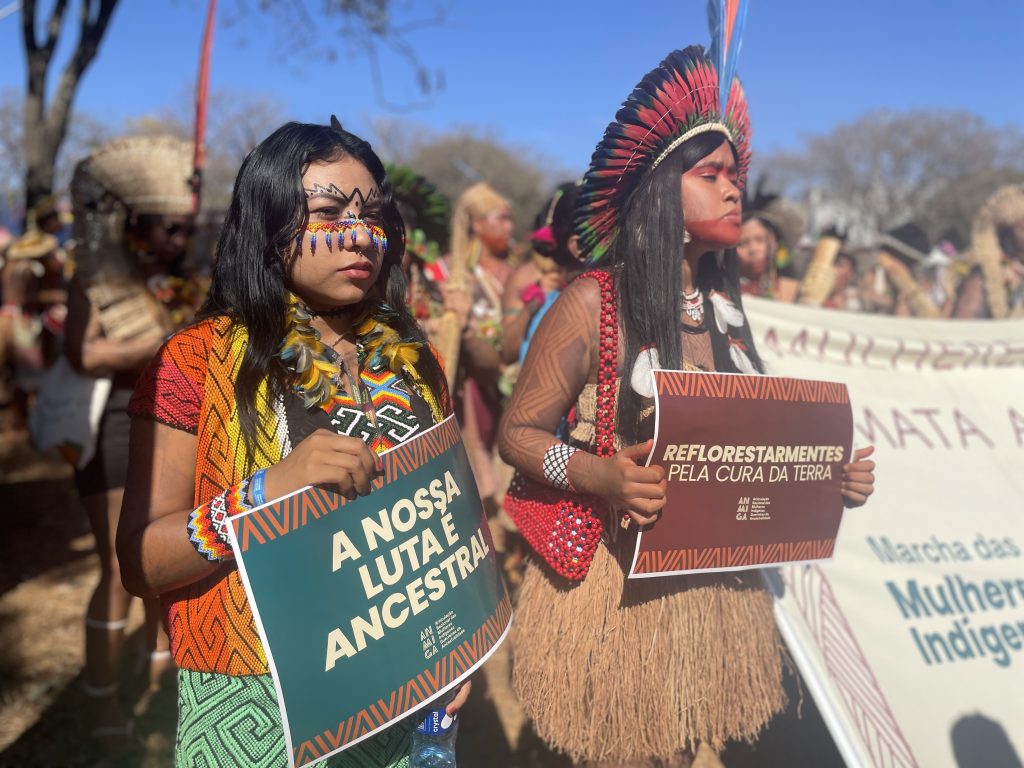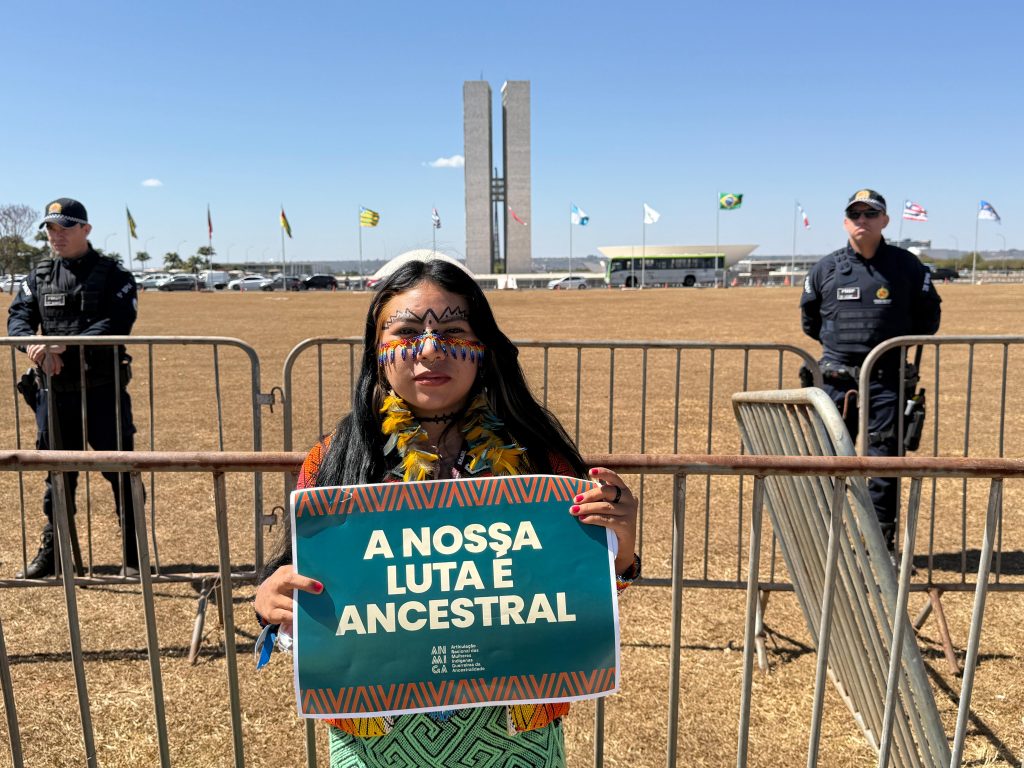Our project Amazon Indigenous Wisdom: Shaping Climate Solutions in Brazil proudly took part in the IV Indigenous Women’s March, held in Brasília in August 2025. The March is one of the most powerful gatherings of Indigenous women in Latin America, bringing together thousands of leaders, activists, and community members to affirm their voices in the struggle for rights, territory, and climate justice.
A central highlight of our participation was the protagonism of our Indigenous researcher Bimi Pinu Yuxibu, who marched on the frontline alongside the Ministry of Indigenous Peoples of the Brazilian government. Her presence symbolised both the strength of Indigenous women’s leadership and the commitment of our project to ensure that Indigenous voices are not only represented but actively leading in spaces of political decision-making and public visibility.

One of the most important successes of the project has been precisely this: supporting Indigenous researchers such as Bimi Pinu to take their place in national and international forums of discussion about climate change and Indigenous rights. By enabling their protagonism, the project strengthens Indigenous sovereignty and ensures that their knowledge and perspectives shape the global climate agenda.
The March offered a vital space for dialogue, testimony, and collective action, where songs, dances, body paint, and spiritual rituals became acts of political resistance and cultural affirmation. Our participation highlighted the role of Indigenous women as guardians of biodiversity and protectors of water and forest territories. It also allowed us to share the collaborative methodologies we have been co-developing with communities—such as participatory mapping, storytelling, and artistic practices—demonstrating how academic research can stand alongside Indigenous struggles and amplify their global visibility.
The Indigenous Women’s March reminded us that climate justice cannot be separated from gender justice, territorial rights, and Indigenous sovereignty. Walking alongside the women who lead this movement, with Bimi Pinu at the forefront, was both an honour and a responsibility that continues to shape the direction of our project.
The Impact of the Image of Bimi Pinu in Front of the Brazilian National Congress
The photograph of Bimi Pinu Yuxibu, an Indigenous woman researcher from our project, standing in front of Brazil’s National Congress, carries a profound symbolic force. With her body painted and voice raised, she demands protection for the Amazon and for Indigenous territories, vital heritages not only for Indigenous peoples but for all humanity. In the background, two armed police officers stand guard before the monumental Congress building, which should be the house of the people, yet is surrounded by fences and barriers. The contrast is striking: on one side, the courage of an Indigenous woman claiming fundamental rights; on the other, the apparatus of power and security closing itself off from the very voices it should welcome.

While Indigenous women march to defend life, water, and the forest, institutions remain distant, shielded by weapons and walls. The framing of the photo transforms Bimi Pinu’s act of resistance into a visual denunciation: the struggle for the Amazon and for Indigenous peoples is also a struggle for recognition, dialogue, and the opening of political structures to those who most directly suffer the impacts of the decisions made within those walls.
